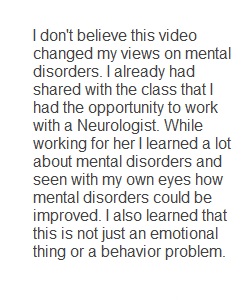


Q Class Discussion - The most important lesson from 83,000 brain scans 1010 unread replies.3232 replies. Dr. Daniel Amen is a psychiatrist whose research with SPECT imaging of brain function is quite simply amazing. The following is from his bio for the 2019 California Student Mental Wellness Conference: Daniel Amen, MD has been called “The Most Popular Psychiatrist in America” by The Washington Post. He is a 10-time New York Times Bestselling Author, the founder of The Amen Clinics, a double board-certified psychiatrist, and an international speaker. The Amen Clinics have the highest published success rates treating complex psychiatric issues, building the world’s largest database of functional brain scans, totaling more than 135,000 scans on patients from 120 countries. Dr. Amen has published over 70 scientific articles on topics including Autism Spectrum Disorder, resistant depression, suicide, Attention Deficit Hyperactivity Disorder, Posttraumatic Stress Disorder, and Traumatic Brain Injury. His research was recognized by Discover Magazine in its Year in Science issue as one of the “Top 100 Stories of 2015.” Dr. Amen is the author of over 30 books, including the #1 New York Times bestseller, Change Your Brain, Change Your Life, Healing ADD, and Unleash the Power of the Female Brain. Dr. Amen has written, produced and hosted 12 popular shows about the brain on public television. He has also spoken for the National Security Agency (NSA), the National Science Foundation (NSF), Harvard’s Learning and the Brain Conference, and the Department of the Interior. Dr. Amen’s work has been featured in Newsweek, Time Magazine, Huffington Post, BBC, The Guardian, Parade Magazine, New York Times, New York Times Magazine, Washington Post, LA Times, Men’s Health, and Cosmopolitan. The following 2013 TedTalk video explains his work. Daniel Amen, from 2013. In this chapter, we've looked at several treatment methods for mental disorders. If nothing else, this video shows the importance of getting a proper diagnosis before undergoing treatment. In 75-100 words, answer the following questions. Does this video change how you view mental disorders? Why or Why not? Respond to at least two other student's posts in 75-100 words. I'll also comment as necessary. Note: Click the options button in the upper right corner to see the rubric for this exercise.
View Related Questions